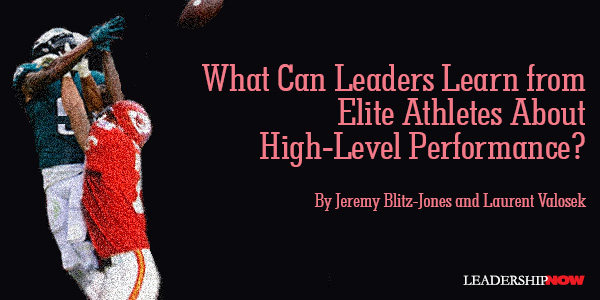What Can Leaders Learn from Elite Athletes About High-Level Performance?
WITH THE SUPER BOWL around the corner, what can business leaders learn from elite athletes about high-level performance?
Be like Roger. And Michael. And Simone. And Usain. And many others.
That’s key advice for business leaders seeking to improve their impact and excel in a sustainable, long-term way that’s good for them and everyone around them.
The Roger, in this case, is none other than Roger Federer, the tennis legend considered an exemplar of athleticism and sportsmanship.
But underlying Federer’s and other top athletes’ outsized success is rigorous devotion to routines and practices that optimize their state of mind and body for high-level performance. This matters to effectiveness in the business domain, too, where such practices are often ignored or dismissed, even though they support one’s centeredness and capacity to maintain focus, be creative, and make good decisions, even under great pressure.
The takeaway? Leaders in any organization can enjoy higher performance on every dimension if they establish a discipline of daily, weekly, monthly, and annual practices that systematically support their centeredness.
So why does maintaining practices that yield a high-performance state of mind matter so much for leadership? Here’s why.
The Need for a Performance-Enhancing State of Mind
A key thing athletes and leaders share is the need for a performance-enhancing state of mind. Specifically, both perform best when they are able to enter and maintain a calm, alert state under high stress, whether facing match point on the tennis court or an unexpected setback at the negotiation table, as research suggests. This ability to focus and perform under stress is what sets the Michael Jordans and Roger Federers apart from the rest—they may not be the best overall athletes, but they’ve truly mastered the all-important mental part of the game.
…
…
Posted by Michael McKinney at 03:17 PM
Permalink | Comments (0) | This post is about Teamwork




